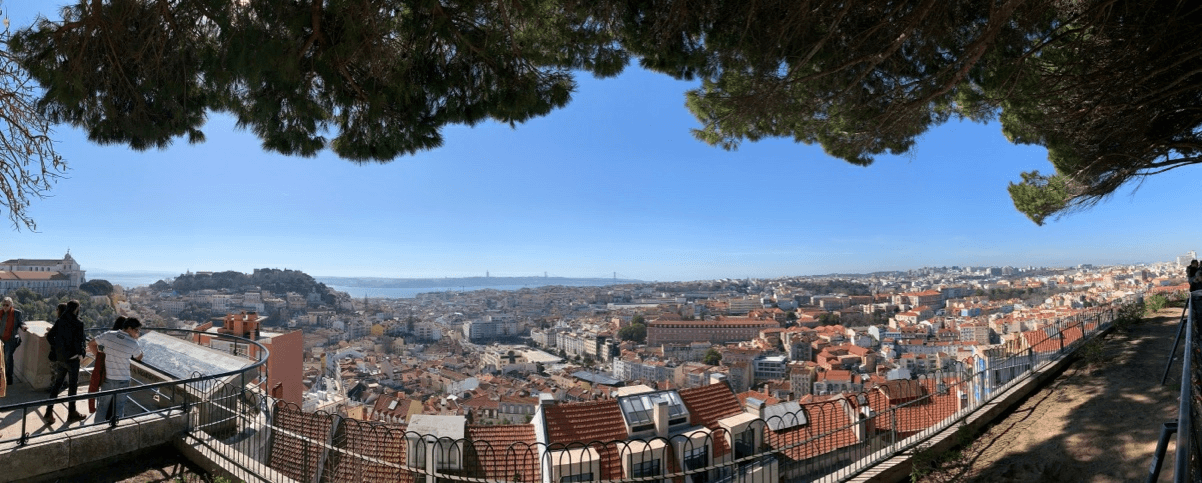“It’s hard to be down when you’re up” – Control, Understanding and The City.
“I wonder what is the source of this pleasure of “seeing the whole,” of looking down on, totalizing the most immoderate of human texts. To be lifted to the summit of the World Trade Center is to be lifted out of the city’s grasp… It’s hard to be down when you’re up.” Michel de Certeau
This quote from French psychoanalyst Michel de Certeau condenses a feeling that many will have had, though cannot quite fully explain: Why do we take pleasure in viewpoints, lookouts and the top floors of skyscrapers? What is it about these vantage points that give us that ‘larger than life’ feeling?
The city is a confusing entity. Whether it has been meticulously planned, or has simply developed naturally over centuries, it is often incredibly difficult to truly understand. When arriving for the first time, we are hit with a barrage of new sights, smells, people and culture. Indeed, the first reaction is usually to find something to orient ourselves, finding a system or service that we know exists in other similar cities that we have already inhabited, and then working from there. Examples of this could be a train station, bank, church, supermarket; by finding universal facilities that exist in nearly all cities, it becomes easier to navigate a new environment.
Settling in to a new urban environment can be seen as matching and modifying an old system of living to fit a new and different place. The building blocks of how we live, work and function will be similar, but the specificities of how we do it must adapt. Once you are settled, you solidify this routine until it becomes second nature. You might even forget the way that you used to live, the consequence of becoming accustomed to a new style of living, in a city that you now call home. When eventually you move on, the same process is repeated. Now you may draw on multiple past experiences, but the process is essentially the same. By using tried and tested formulas, we manage our inherent human desire for routine, and implement these plans on whatever the environment.
“The city also falls into this dual scripting. It is often branded as “evil”, harbouring the underbelly of modern society, while at the same time, it is heralded as the pinnacle of civilization, as man’s triumph over the barbarism of uncivilized earlier times and as a hallmark of the success of the project for pushing forwards the frontier of a wild and untamed nature.” Maria Kaika
Drawing on what Kaika comments, it can be argued that the city, in its most basic form, is the representation of the human need to exercise control over their surroundings. We do not wish to simply live in nature but to tame it, master it, and modify it for our own desires. Moreover, this does not only apply to the design of cities themselves but the way in which an individual chooses to inhabit cities. We create routines, schedules and centre our whole way of living around having control. The very thought of being out of control can lead to serious mental health consequences, anxiety and a lack of self-worth. Although, as stated before in this article, the building blocks of our lives are generally constant and non-changeable, having the autonomy to decide the details, the small things, is absolutely key. Your choice of supermarket, regular coffee shop, the route you take to work; all of these are small but significant ways in which we exert control over our schedules. Our habits are not just customs we coincidentally act out, but an integral part of how we inhabit a city.
Returning to de Certeau, it is this relationship between control, understanding and the city, that explains our love for skyscrapers, viewpoints and lookouts. By simply being above all of the chaos of the city, above of all the individuals going about their normal routines, we exercise control not just of ourselves, but of the very city itself. New York, La Paz and Lisbon all provide perfect examples of confusing, alive, bustling cities, with spectacular and stunning lookouts. Suddenly, all of the confusion and anxiety of occupying the city is lost, and the city is legible and intelligible. We transform into, as de Certeau explains, a ‘god’, gaining the omniscient perspective that is simply not possible from the ground.
“His elevation transfigures him into a voyeur. It puts him at a distance. It transforms the bewitching world by which one was “possessed” into a text that lies before one’s eyes. It allows one to read it, to be a solar Eye, looking down like a god.” Michel de Certeau
Once again, power is the key dynamic at play. Rather than the being the inhabitant, the apprehensive pedestrian who is just trying to survive in a confusing and ever-changing environment, all of us wish to be, at least for a while, sitting up on high reading and understanding the beauty and confusion of the city. It sure is hard to be down when you are up.




 A selection of my own photos, demonstrating how elevation helps to understand
the city.
A selection of my own photos, demonstrating how elevation helps to understand
the city.Subscribe to The Pangean
Get the latest posts delivered right to your inbox